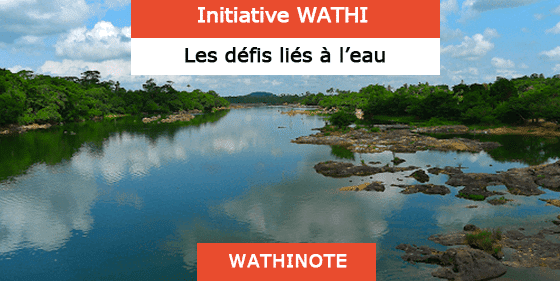

Authors : Leo Holtz and Christina Golubski
Affiliated Organisation : Brookings
Site of publication : brookings.edu
Type of publication : Article
Date of publication : July 2021
Access to clean, affordable, and safe drinking water is both a fundamental human right recognized by the United Nations and Goal 6 of the United Nation’s Sustainable Development Goals. However, access to this essential resource in Africa is not yet universal, with 1 in 3 Africans facing water scarcity and approximately 400 million people in sub-Saharan Africa lacking access to a basic drinking water. Access to water remains a pervasive development issue across the continent: Indeed, addressing climate change and poor management of water resources and services is paramount to tackling Africa’s water stress.
Intergovernmental risk-pooling mechanisms, such as the African Union’s African Risk Capacity (ARC), could be increasingly important sovereign insurance mechanisms to mitigate climate disasters, as they provide faster payouts than humanitarian aid
Aqueduct, an online geographic information system (GIS) tool produced by the WRI to map global water-related risks, reveals Africa’s extensive exposure to water-related risks. Their model accounts for a variety of metrics, such as vulnerability to floods and droughts, water stress, and seasonal variability. “Extremely high water risk,” demarcated in dark red, covers large swaths of arid northern Africa, southern Africa, and eastern Africa. However, water risk throughout the continent is quite heterogeneous, as light patches, such as those along the Nile River, are interspersed with the areas suffering from critically high water risk.
Africa’s agricultural sector is poised to face significant exposure to water-related climate risks in the future. As 90 percent of sub-Saharan Africa’s rural population depends on agriculture as their primary source of income and more than 95 percent of the region’s farming is reliant on rainfall, the consequences of unpredictable rainfall, rising temperatures, extreme drought, and lower crop yields expose one of Africa’s poorest communities to increasingly intense climate- and water-related hazards.
Intergovernmental risk-pooling mechanisms, such as the African Union’s African Risk Capacity (ARC), could be increasingly important sovereign insurance mechanisms to mitigate climate disasters, as they provide faster payouts than humanitarian aid.
Investing in climate-resilient green infrastructure provides a myriad of benefits throughout the economy, namely, generating jobs, alleviating poverty, and diminishing the impact of climate change on Africa’s most vulnerable and marginalized communities
The effort will be expensive: According to the authors, securing universal safe drinking water, sanitation, and hygiene in sub-Saharan Africa requires $35 billion per annum in capital costs. While efficient “smart design” of water management systems can promote greater climate resilience for water and sanitation services, the WRI attributes securing adequate revenue to maintain new infrastructure as the biggest challenge facing African policymakers and engineers in the water sector.
Investing in climate-resilient green infrastructure provides a myriad of benefits throughout the economy, namely, generating jobs, alleviating poverty, and diminishing the impact of climate change on Africa’s most vulnerable and marginalized communities.
Les Wathinotes sont soit des résumés de publications sélectionnées par WATHI, conformes aux résumés originaux, soit des versions modifiées des résumés originaux, soit des extraits choisis par WATHI compte tenu de leur pertinence par rapport au thème du Débat. Lorsque les publications et leurs résumés ne sont disponibles qu’en français ou en anglais, WATHI se charge de la traduction des extraits choisis dans l’autre langue. Toutes les Wathinotes renvoient aux publications originales et intégrales qui ne sont pas hébergées par le site de WATHI, et sont destinées à promouvoir la lecture de ces documents, fruit du travail de recherche d’universitaires et d’experts.
The Wathinotes are either original abstracts of publications selected by WATHI, modified original summaries or publication quotes selected for their relevance for the theme of the Debate. When publications and abstracts are only available either in French or in English, the translation is done by WATHI. All the Wathinotes link to the original and integral publications that are not hosted on the WATHI website. WATHI participates to the promotion of these documents that have been written by university professors and experts.
